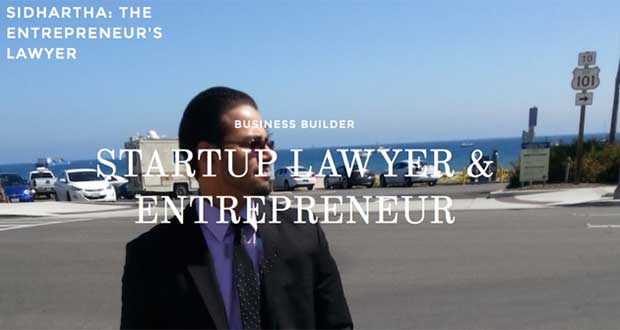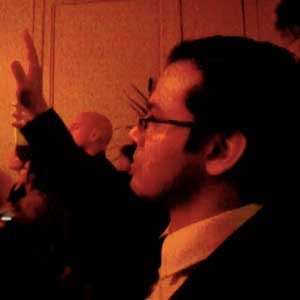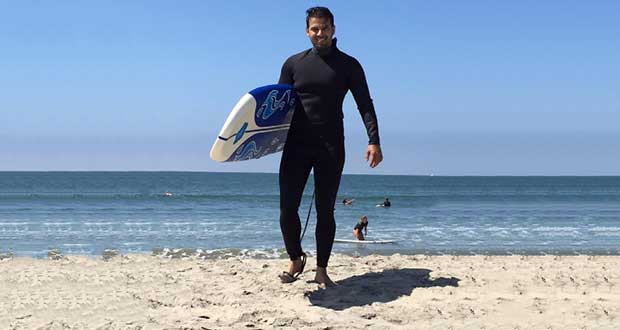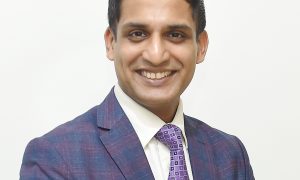Sidhartha Peddinti graduated in Law from University of London through an unique programme through London School of Economics, in 2011. A graduate of Business & Economics from University of Toronto, he is currently a Startup Lawyer & Business Consultant at GlobalQuest Ventures LLC.
He started working in the Immigration Law Offices of RAK at USA. Thereafter he went on to become partner at California Law Services where he handled immigration and bankruptcy work. He describes himself to be a lawyer with an entrepreneurial mindset.
In this interview he talks about:
- His choice to become a lawyer even after specialising in economics;
- The options for a lawyer to become an entrepreneur;
- How he joined LSE and his experience at the institution; and
- His journey as an entrepreneur.
Tell us about yourself. Since when are you living in US? Where did you get your primary education from?
I am a real international citizen, in that I was born in Dubai, raised all over the Middle East, then spent three years during middle school at an international boarding school called Rishi Valley in India, moved to Toronto with my family in high school, obtained a bachelors degree from Toronto, a law degree from London, and then another advanced law degree from Los Angeles. So, my varied experiences and vastly different background has shaped my mentality, my attitudes, and my interests to be a hybrid of an Indo-Canadian-Middle Eastern, rounded up with an outdoor Californian lifestyle. I have been in the US since 2011, and have been an attorney since the past year and a half, i.e. January 2014.
You did your bachelors in Business & Economics from the prestigious University of Toronto, tell us something about the course, the school and why you choose business & Economics?
A pivotal moment shaped the way I thought about business and my career was in high school. I read a book called ‘Rich Dad – Poor Dad’ which I bought at a garage sale for $5. It explained the difference between (what the author referred to as the 4 quadrants) employees and self employed persons who fall in quadrants one and two, business owners and investors fell into 3 and 4. 1 & 2 work for their money – they don’t show up to work – they don’t get paid (even most lawyers fall in here – no client, no money). 3 and 4 found a way to be involved in multiple avenues and still accumulate wealth, while they are busy doing other things with their time or managing multiple assets they own.
I wanted to understand more about how I could end up in the sectors 3 and 4 – where I can get my money to work for me, a state where, through my acquired and vested interests in companies, homes, stocks, and other assets, I could receive multiple sources of income. This was the start of my interest into economics, and business – I simply had to understand the way different business models worked, how the market worked, and how to operate a business. After getting accepted into the best University of Toronto – the number 1 University in Canada, it was a real no-brainer that I had to pick this school. It was over 175 years old, and in the top 25 best universities in the world. The courses were very challenging, but it was rewarding to complete the degree and understand how market cycles worked, and how each industry was affected by these cycles.
A degree in Business and Economics is often enough to land anyone lucrative job at a big company. Why did you choose to do Restructuring through CAIRP, and then choose law after that, rather than accounting, finance, investments – the natural course for business majors?
Good question. Following from the previous question, after I understood the way the different models worked, I knew that there was a recession that was going to affect North America, atleast thats what our Economics Professors were predicting around 2005/2006. I researched this theory and found the bubble was about to burst since everyone had their credit over-extended. Virtually all my friends ended up choosing a big firm for either accounting, audit, strategy, or some for an MBA. I wanted to prove my theory of the recession and be involved in that game of using the market to my advantage I hunted for a boutique law firm that specialized in Bankruptcy law and restructuring law, and choose to join their practice as an Estate Administrator – a job that gave me a brief overview of the process involved. The pay was less than half of what my friends were accepting immediately after graduating, but almost immediately after joining the firm, I started a course, sponsored by the lawyer, in Bankruptcy & Restructuring law & consulting, through the association that monitored Restructuring Professionals in Canada called CAIRP – Canadian Association of Insolvency & Restructuring Professionals. I received my certification to consult in a very short time since I was lucky to finish all my courses and pass the state exam in one sitting. As soon I completed all my practical training, within 6 months of initially joining this industry, I started a firm called Clear Debt Solutions. From 2007 – 2012, I had over 1000 cases that I personally handled, close to 500 being business bankruptcies. The firm still exists and is controlled by partners who I hired when I joined law school in 2009.
You did your law from London Scool of Economics, through the International Law Program from University of London from 2009-2011. Tell us about your time there, and why you choose that program over Canadian or US schools?
After being exposed to many lawyers in my restructuring practice, I wanted to add law school to complete my quest to understand more about business and the legality of doing business. I started law school from the UK, rather than in North America, because I wanted to have a unique edge to my portfolio, that separates me from the normal law applicant. I choose the International Law Program specifically, because it was flexible in its timings, its lectures delivery methods, and its study methodology. During these years, my consulting firm was booming, as the recession got worse, my revenue got better, and by mid-2010, I operated 5 locations throughout Toronto. I had a partner, few employees and hundreds of clients every year. I could not leave all this to complete a full time law program, which most Canadian law schools offered (Only 8 in Canada by the way), and which was also required by Immigration for me to attend law school in the US.
By choosing to study in an International Program, based out of London, yet not being required to physically be present one hundred percent of the time, allowed me to work and study simultaneously – something that enhanced my understanding of the subject matter, while being able to practically utilize and gain ‘lawyerly skills’ through my practice in Toronto. Sure, it was hectic, since I flew back and forth, balancing school and work in two continents. I simply could not let either of them go. Of course, the fact that it was University of London, one of the best schools in world had a lot to do with it, and when they offered me an entire law degree in under $20,000 (plus still able to work) compared to $150,000 in the US – I could not pass up that offer, and in the end did not rack up a single dollar of student debt as compared to an average law student who has over $150k debt in the US.
Did you interact with Indian students there, given that UK law schools are a popular choice among Indian law students?
I met some incredible students who were also part of the international program. In fact, it allowed me to network with students from almost 50 countries directly through a portal system, something I checked out before I started the program, and many of those people are still my close friends to this day, in Canada, India, Pakistan, and even from Brasil and other countries. The pass rate at the International Law Program was roughly 25% after the 3rd year, so unfortunately many of the Indian students I met did not manage to complete the program, or moved on from law into other areas.
With your LLM from Southwestern University, USA, you have received legal training from three countries. In what ways has this versatile academic environment helped you?
To remain true to my original quest of being in quadrant 3 and 4 – business owner and an investor, I knew that the opportunity for this dream truly existed in the US, compared to Canada or the UK (from a global standpoint). So, while finishing law school from London in 2010, I applied to LLM programs all over Canada and the US for the 2011 Fall start session. I knew that the market was slowly starting to pick up now, and in a few years the market would be in the re-building stages again. I wanted to be in the center of this movement, and by being in California – the world’s hub for innovation and technology, I could not go wrong being a lawyer and entrepreneur in California. I was lucky enough to be accepted into all the schools I applied to, and they even allowed me to start the LLM program before my final grades were released from University of London. It was a miracle, since the administrators office at Southwestern made this exception for the first time for a foreign student in over 100 years. In two weeks of starting, I received my grades, and another miracle happened where I was in the 15% of students who passed all the courses that year, thus getting my degree after I had already started working towards a LLM degree.
I picked Southwestern in Los Angeles because it was a school that had a flexible course options, and one that allowed me to complete the courses that I wanted to take. My eventual strategy was to attempt the dreadful California bar exam with 15% pass rate for foreign lawyers, and I knew I had to be prepared for it, since I am competing with local students with 3 years or legal training, compared to only 1 year for me.
You never took a job at BIGLAW while you do have an impressive lawyerly profile. Why so?
My interests, skills, and passion lies in entrepreneurship. I choose to do law to become a lawyer, but more importantly to become a good businessman. I believe that it has allowed me to think in a manner that is different from the lay person. I did not take up any positions at large firms because I believed that I have a unique skill set that would be wasted at a large firm, doing routine work, albeit they pay a lot for it. Many of my friends work a large firms, and making large paychecks, but the very thought of a desk job never appealed to me, and I have rejected some very lucrative offers in the last year, since I prefer to be out and about, running around making things happen. I am a very high energy individual who needs to constantly be in motion, and although for some of my friends BIGLAW has worked out great, it was never my cup of tea.
The California Bar is said to be the hardest law exam in North America with less than 15% pass rates for foreign trained lawyers over the past 30 years. Explain why you choose to do this crazy step, given these statistics?
I knew the statistics and I knew the high chances of failure. No one thought I could make this happen, since there are horror stories all over the web of people failing the California Bar 5 or 6 times. I thoroughly researched about every course I was expected to take, and by carefully selecting only Bar Courses, and some international law (my interest) courses in my LL.M, I was able to complete all core courses required by Californian law students that were going to be tested on the Bar. This allowed me to get the local training I needed for those courses, plus having international exposure. I nevertheless decided to take the bar and give it a shot, and luckily I was among the 22% of LL.M students that passed the Bar in my round of the California Bar Exam for July 2013.
Before we go into your entrepreneurship ventures, tell us about your legal consultancy work. How did you establish such a vibrant consultancy practice?
In my quest to be in quadrant 3 and 4, I engraved in my personal charter that I would understand different business models, so that I would eventually have various companies in my own portfolio. This is still my mission, and every time I meet an entrepreneur in a different industry, one unknown to me, I gladly take on the case to understand the industry better.
I had this mentality since I started my first business, and I have enjoyed every business I have consulted with. Thus, my present consulting practice is one that can cater to clients from many industries, and clients from all stages of the business cycle. I now understand how these different models work, and am easily able to put myself in the shoes of my client, the entrepreneur, and advice, strategize, and legalize – all in one chain of thought. It is a lot of work, since I spend the time to research about different industries, but I suppose I am hooked to it. This has left me at the crossroads of law and entrepreneur.
How is Canada or US as a career choice for Indian law students?
Canada is a great place for Indian lawyers – especially those in the midst of their careers. The process of qualification and the exams are easier, with almost a 80% pass rate. In my opinion, it is great for an entrepreneurial lawyer, especially one who wants to serve the Indian community – especially in Criminal, Real Estate, or Divorces. Litigation is primarily taken up by local law students – Indian or otherwise, and largely dominated by those who received local training.
US is a different beast altogether. The laws are also similar to British, but the legal ecosystem is very different. The bar is tougher, longer, and more intense. There are a lot of restrictions and qualifications the applicant has to go through. That said, a US lawyer is valued globally, and opens far more international doors than I would had as a Canadian lawyer in the international and startup up space. There are a lot of jobs in the US, especially for litigators, since the laws are geared towards solving grievances in court. There is also a lot more work for lawyers in the US, in terms of the types of law, the types of cases, and the truly unique legal system they have created here (I find a vast contrast from the Canadian and British legal culture). So, be ready to get comfortable knowing about the local culture, if you want to be a successful American lawyer in the US.
Why did you make the shift from Canada to the US?
My move was primarily because of two reasons: (i) large opportunity to be involved in the upswing of the economy in terms of products, startups, and opportunities; (ii) great weather compared to the bitter Canadian winters.
I have always wanted to be involved in the globalization of economies, and being in California was more suited to my needs than to accomplish that from Toronto. However, since I have a consulting practice in Toronto, I still fly there often and work there.
In the US you started working at Immigration Law Offices of the RAK. How is the work culture there and did the local reference help you understand the culture better?
In my attempt to find out the local work culture and integrate into local legal scene, I decided to work for a solo lawyer, plus he knew immigration laws, so I did not really have to pay a hefty price for an immigration lawyer to figure out my visa. To understand immigration laws in the US is very important, it is the most complex system in the world, and a simple violation can be disastrous. I figured by working for an Immigration lawyer, I could hit three birds with one stone – (a) local work experience, training, and integration; (b) learning about immigration laws; and (c) did not have to pay for an immigration lawyer since he mentored me to fill my own paperwork which I wanted to get a grip on anyway.
You were a partner California Law Services and worked there for a year. Where are you currently working, what kind of work do you do there?
I worked as an Immigration and Bankruptcy lawyer with my previous employer, RAK, turned partner at the new firm. We mainly handled immigration and bankruptcy work, both which were areas I had some comfort with. I found both areas to be very competitive, and faced fierce competition. Meanwhile, my personal interests in entrepreneurship were not being fulfilled, so post my return from India last December to explore the startup scene, I joined as a partner at a boutique firm which was focused on law, entrepreneurship and startups.
I currently work as a partner at GlobeQuest Ventures, LLC – as the name indicates, we travel the world looking for startups and companies to help them in their entrepreneurial journeys – legally, strategically, and practically. I absolutely love it – and finally have been able to combine my passion of law and entrepreneurship in one.
Please tell our readers something about your entrepreneurship journey, and how you lived your 20’s working and studying?
As I mentioned earlier, reading that book changed my career path. I was getting the education and theory side of it, but I also wanted to work on the practical side of it. I started my first business as soon as I finished the book in high school, aged around 18 or so. I have never looked back, and have been fortunate enough to have made that step at such an early age. I had some sacrifices along the way, but I see those as opportunity costs, and have not regretted any missed vacations, or parties (missed many of them). I made sure to have a very vibrant social when I could and led an active lifestyle to compensate from the stress from my business and school. Sports was my way of balancing myself, and I enjoyed playing 5 different competitive sports in my 20’s.
How many companies in total have you founded?
I have been fortunate to be part of 8 different companies to date. I have recently acquired equity portions in 3 new companies, and hope to be part of another 100 companies in the next 20 years or so.
How do you define yourself, as a Lawyer or as an entrepreneur?
A lawyer with an entrepreneurial mindset. My dream of combining both my passions has led to work in a dual capacity – working as a lawyer when needed, or as a founder, partner, strategic advisor, or in-house lawyer. I value flexibility and adaptability greatly, and my past experiences that allowed me to transition into role with relative ease.
Tell us something about your latest startup venture.
Through GlobalQuest Ventures, LLC, my recent clients have primarily been disruptive technologies that are in the mobile app space. One is a disruptive journalism app, another is a Uber for private planes, and another is a revolutionary dating site for a selected and elite customer.
Another venture I started is called LLMbartutoring.com, a tutoring school that is dedicated to helping foreign trained lawyers integrate into the California system by assisting in local cultural transition, job training, course assistance, Application help and California Bar Exam training. This information can also be found in my personal ventures section on my webpage.
On the other side, I started working on some revolutionary product lines with some very famous scientists, who specialize in holistic medical formulations. I have approached some celebrities and famous television personalities to team up with us, and can possibly secure a very large deal in the next 2 months that can help us potentially move millions of units every year. That would satisfy my itch to be a co-founder in a truly non-legal business – a turmeric infused skin care line, scientifically backed and tested by the foremost expert in turmeric infusions.
Your website sidharthapeddinti.com seems to be offering a complete ecosystem of service for startups. How did you manage to that?
By finding a way to incorporate all my interests in one way through GlobalQuest Ventures, LLC, I decided to put all my thoughts on one site, that describes me as a person, as a lawyer, an entrepreneur and eventually as an investor (with my portfolio). Thank you for mentioning my page, since I built that page myself in less than a day. I have no previous computer training, programming or coding or any other backend experience, but I knew that by watching the right videos and reading the right articles, I could do it myself. I have since created 5 webpages, and even got some people asking me for a referral for the company who created my site. In short, I want to prove and inspire people to understand that anything can be done, with the right mindset, and if a non-tech person like myself can make wesites in a day, others can live their dreams and make it happen over night as well. That was the real motivation for the site – inspiring people to live their dreams by quitting their boring jobs as a first step.
Are you also working with any Indian companies who are looking to expand internationally?
I have started to form many strategic partnerships with corporate lawyers, startups consultants, and other individuals who are involved in the Indian startup scene. I am eager to enter the Indian startup space and help take those companies international – US, Canada or other countries. We look to form strategic alliances, joint ventures, mergers, acquisitions, and even where lucky, take it public.
I am looking to team up with key individuals in India who can help me in this quest. That is the reason my company is called GlobalQuest Ventures, LLC – where law meets entreprenrurship and strategy.
What advise will you give to young lawyers who want to become an entrepreneur?
I find the practice of law requires a different set of entrepreneurial skills than a mobile app company or a revolutionary product. Being part of an elite subset of society, one that is highly regulated and controlled (worldwide), lawyers have to follow certain protocols that other entrepreneurs may not necessarily face, especially relating to contacting potential clients, or advertising standards, or types of deals that one can take one.
Thus, solo lawyers who want to hang their own shingles should think like a lawyer first, and only after taking all the protective measures, one should engage in their targeted marketing campaigns. So, it’s a unique type of an entrepreneur who should expect 3-5 years, at a minimum, to start realizing the resulting they imagine. I know a lot of lawyers, and virtually every single highly successful lawyer that I know, has been practicing for at least 5 years. So, there is no way to get around patience.



























